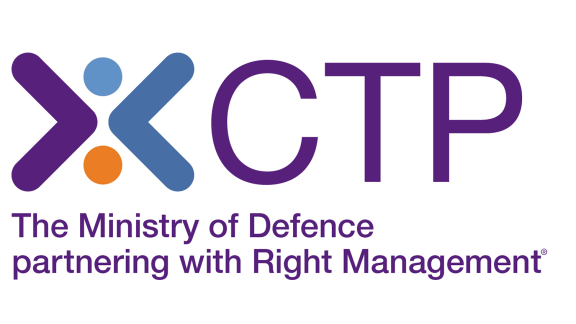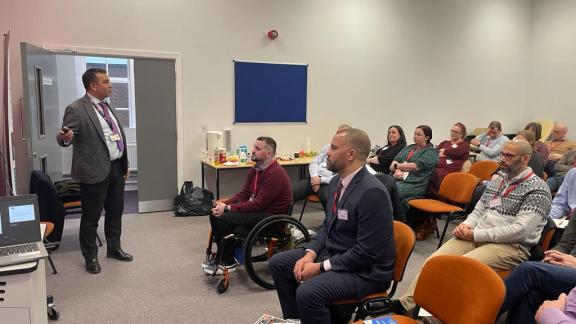Who are the Armed Forces community

Who are the Armed Forces community?
The Armed Forces community comprises veterans, reservists, cadet force adult volunteers, service leavers, individuals who are wounded, injured, or sick (WIS) and the partners or children of regular serving personnel. The values held by members of the Armed Forces community align closely to the NHS organisational values and ways of working, with particular emphasis on service, commitment and respect.
Here is further information about each group within the community:
Potential barriers faced by the Armed Forces community
To benefit from talent within the Armed Forces community, it is important you ensure that your policies, procedures and recruitment practices do not pose a barrier to individuals who wish to pursue a successful career within the NHS.
Rank, experience, pay and qualifications
Diverse roles and qualifications
With over 150 roles within the UK Armed Forces and 350 roles in the NHS, candidate qualifications and experience may not translate perfectly but there is likely to be significant commonality between many.
Some candidates may choose not to mention their military rank or struggle to relate it to civilian contexts. The Step into Health team advises noting the final rank once and translating other appointments and ranks into civilian terms.
Acceptance of potential pay differences
Some service leavers may accept lower pay due to reasons like transitioning to a new sector, values-driven career choices, or receiving an immediate pension. Personal financial circumstances are private, and candidates need not disclose them, but they may explain a candidate's apparent preference for a lower pay band.
For information on British military ranks, recent pay scales, and qualifications gained through military service use the UK military rank comparison chart.
Resettlement provision
The Ministry of Defence (MOD) offers funding and dedicated time for re-training, known as resettlement, to service leavers who have served for over six years or are being medically discharged.
This support is provided to assist them in transitioning to civilian life. Graduated Resettlement Time (GRT) is an official allocation of time away from their regular duties, specifically designated for resettlement purposes. GRT can begin up to two years prior to their departure from the military.
All service leavers are encouraged to collaborate with the Career Transition Partnership (CTP), an organisation that helps them navigate their transition process.
Transitional challenges members of Armed Forces community may face
Contracts and notice periods
Varied contracts
There are currently multiple contract types in place, each with its own variations regarding the length of service.
Notice periods
Service leavers who have chosen to leave can have different notice periods depending on their circumstances. Notice periods can range from 24 months for some individuals to 7 months for others, while some may have much shorter notice periods, such as 6 weeks.
Services no longer required (SNLR) and medical discharges
It's important to note that less than 1.1 per cent of all discharges fall under the category of services no longer required (SNLR) or medical discharges. These specific circumstances allow for shorter notice periods.
Additional support and guidance
If you are seeking additional guidance on effectively supporting Armed Forces candidates, there are several avenues available to assist you:
- Career Transition Partnership (CTP)
- Defence Relationship Management (DRM)
- Regional Employment Engagement Directors (REEDs)
- Veterans Covenant Healthcare Alliance
- Walking with the Wounded
- Forces Employment Charity
- Forces Family Jobs
- Business in the community - Capitalising on military family talent
- Service champion training from the Sussex, Kent and Medway Armed Forces Network
- Organisation Armed Forces Network Lead and members
- ICS/ICB Armed Forces lead



